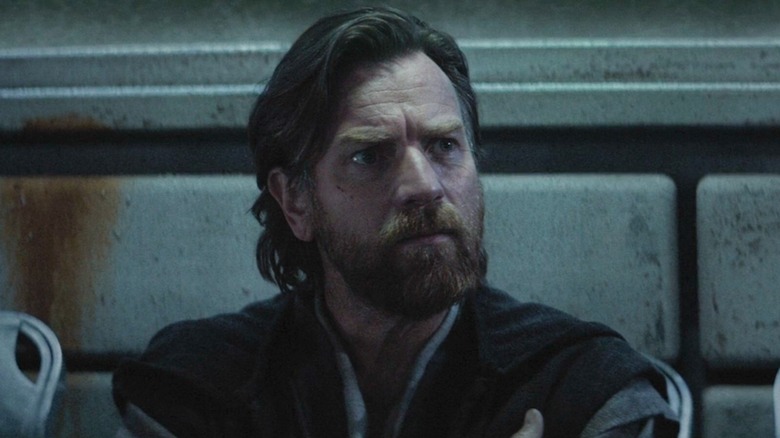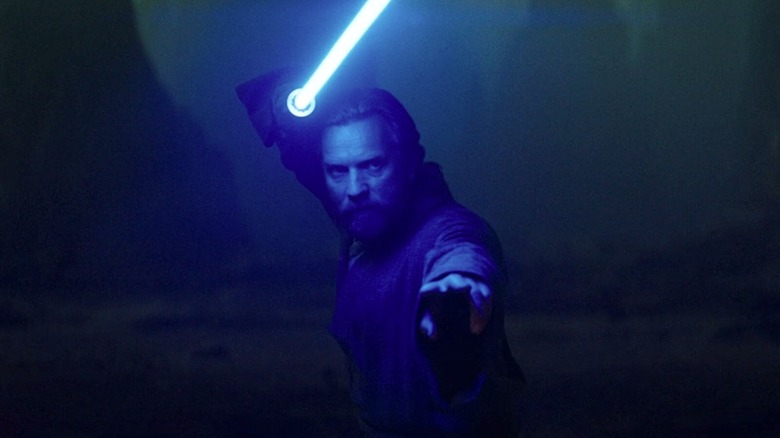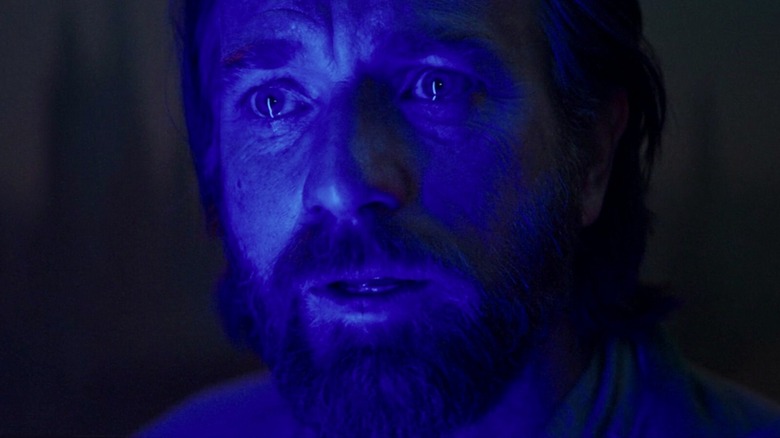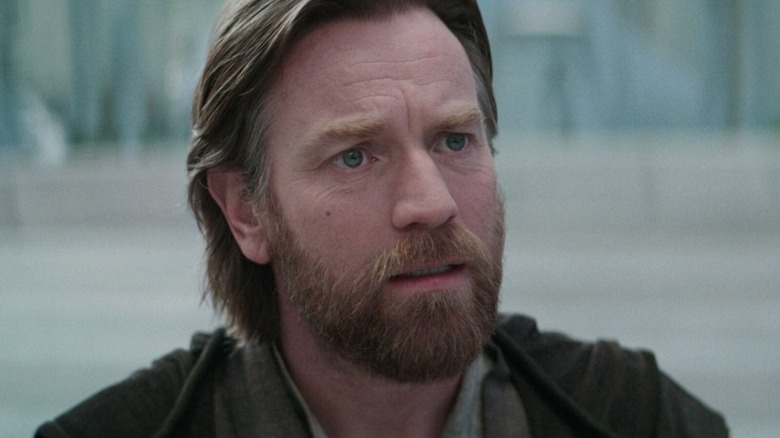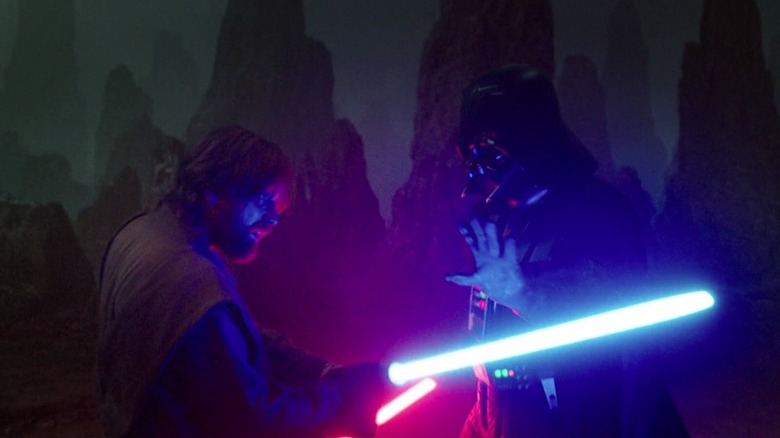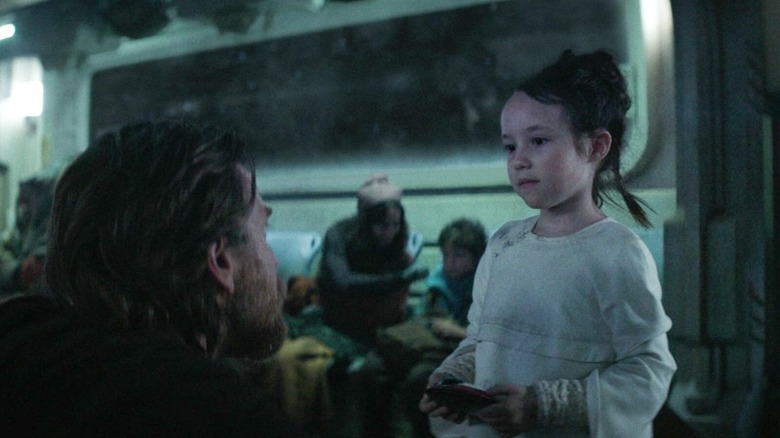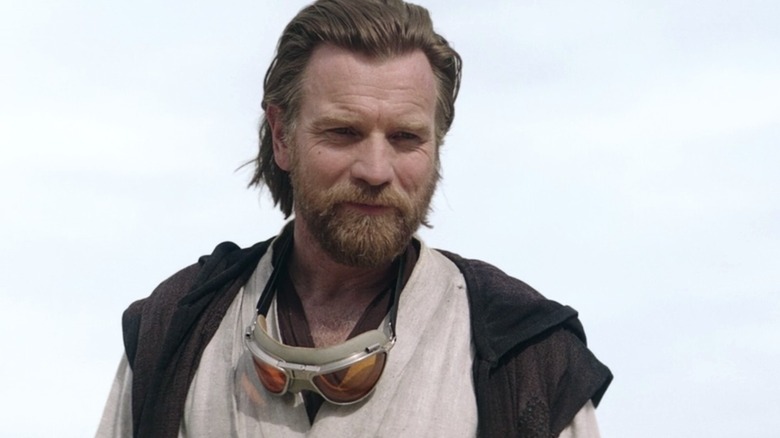A Real Psychologist Profiles Obi-Wan Kenobi
We may receive a commission on purchases made from links.
Spoilers ahead for the entire season of "Obi-Wan Kenobi."
The Disney+ series "Obi-Wan Kenobi" ended its first (only?) season, and I recently spoke with my colleague psychologist Dr. Travis Langley, author of "Batman and Psychology: A Dark and Stormy Knight," and the editor of the Psych Geeks book series including "Star Wars Psychology: Dark Side of the Mind" (to which I contributed).
Obi-Wan "Ben" Kenobi was taken from his family as a tiny child, with few memories of his relatives. He was trained as a Jedi under Master Qui-Gon Jinn, and later took his own padawan, Anakin Skywalker, whom Qui-Gon believed was the chosen one, sent to bring balance to the Force.
Obi-Wan has a deep connection to the Force, but was blinded by his love for his friend and padawan, and his trust in his master, leading to mistakes. Now, as Anakin has risen to rule as Darth Vader, Obi-Wan has to deal with the guilt he feels over what happened to his former padawan, and protect Anakin's children Leia and Luke, watching from afar, rarely part of their lives, while serving the people who cannot fend for themselves. Let's dive into the psychology of Obi-Wan Kenobi.
The Subject: Obi-Wan Kenobi
Obi-Wan Kenobi has experienced a great deal of loss, from Satine, the woman he loved and would have left the Jedi order for; Anakin; Qui-Gon Jinn; Padme; and so many other friends. Dr. Langley points out that it isn't just people that Kenobi has lost though. "Not just individual people. Philosophy, the Jedi order itself. The loss of the foundation beliefs."
In terms of what that does to a personality when they've grown up in a structured environment like the Jedi, Dr. Langley says that the reaction depends on the individual. "It depends on their own degree of your ability to bounce back... When the foundation for the things that you think of as your self-concept are gone, destroyed, damaged, changed in a way that they don't feel like what you came up with, it creates a pretty strong internal conflict that shakes a person's self-concept, itself."
He continues:
"For him, his beliefs and ideals had so much to do with the Jedi. He focused so much on the importance of being a Jedi, sometimes above the actual values to themselves. He feels the values. He very much believes in doing the right thing. He cares about other people. Those are inherent qualities to him, in terms of the things he'll think of first it would often be, 'Well a Jedi, such and such.'"
Basic behaviors
Earlier in his life, during the time he was training with Qui-Gon Jinn and then training Anakin Skywalker, Dr. Langley mentions that he thinks that Kenobi's view of life is through the eyes of a Jedi first, and a person second. " ...[H]e goes to Jedi status and Jedi views of things for what he's thinking of at the front of his thoughts a lot of the time ... the core of the feelings, he absolutely believes in them. He's not just following the Jedi for the sake of their rules." He explains that this is very much in contrast to his padawan who was so easily disillusioned by the Jedi order, because Anakin doesn't feel the "underlying emotional core to their principal." Perhaps this is because he started training later in his childhood, rather than being indoctrinated as early as the other Jedi.
When we find Kenobi 10 years after the death of Padme, Dr. Langley says he's in a very different state. "He's in the state of hopelessness. He's in a state of depression. It's very easy to go through a checklist of PTSD symptoms and say that, 'Oh, it looks like Ben has PTSD.' But you got to go to the word. The keyword in PTSD itself, people will focus on trauma, but that word 'stress.' It has to be a stress disorder for it to be PTSD. Stress, anxiety are not what he's mired in."
Living to exist
So Kenobi is living in a depressed state, living for a routine. Dr. Langley explains:
At the beginning of this, he's existing. He's depressed. He's in the state of long-term depression as he's out there, on Tatooine, checking on Luke from a distance. Which is also kind of his excuse. I'm not doing these other things that he's lost hope in. And that he has lost confidence in himself. He is legitimately checking on Luke, but that has also been his excuse within his depression for not doing other things ... He's existing. That's all he's doing. He's going through his existence. And it is not what you see in the... some people's obvious depression. People show in a lot of different ways. And with him, he's been disconnected for 10 years, as far as we can tell. He's been going through this existence for all this time. And that's what he's doing. He's plodding along. He's going through his routine.
Dr. Langley discusses how some could look at his state as dysthymic disorder, a long-term, mild depression because his symptoms don't appear extreme or intense, but they deeply affect his life. He mentions major depressive disorder. This would work given what we know of how he's living, alone, in a cave, separated from the person he's trying to protect, keeping himself under the radar, and having purpose again as Leia's protector is something that breaks that routine.
The root cause of it all
Some of what Kenobi is dealing with presents as survivor's guilt, and is part of the cause here. Dr. Langley explains, "He feels survivor guilt to be certain. But he feels more guilt... Survivor guilt is guilt simply for having survived. There doesn't have to be any causal connection." He says that it's straight up guilt as well, "a more active kind. He has guilt over the things he felt he did and did not personally do. He's heavy on the self-blame. It's not just guilt. It's blame."
He feels like he's to blame, and that, as Dr. Langley says, feels like he created Darth Vader. "When this bit of him... and this is so important. For a while you think it's like, why are we watching these people fight? ...With Ben, there are a couple of big things going on there in that last battle." He says that the battle features a mix of the Anakin that was and the entity now known as Darth Vader, both in the voice and the fighting style, and seeing Anakin embrace who he is now frees Kenobi of some of that guilt that he's been suffering from for so long. "Emotionally, for Ben ... Anakin is gone."
He continues, "You know, he, he thinks Darth Vader is bad through and through. And he is also at a point where, for his own mental health, it helps him to think of it that way." He even compares the lifting of rocks off of himself (Kenobi), as lifting some of the blame off of himself. "He's remembering the people who still matter... That gets him back to the underlying emotional cores of the Jedi, the core of what helped him access the Force in the first place. That's why ... he's had trouble using the Force."
From an early age...
I asked Dr. Langley about Jedi training, because I wondered about the issues, being taken from your family at such a young age. He mentions that there are historical parallels in history. "Your martial arts masters do tend to be individuals who got filled with this from a very early age. They've learned the discipline. They've learned the variety of techniques. It has become such an important part of who they are. But I think part of the downfall of the Jedi is that they've lost touch with some of the basic aspects of ... personhood."
He does mention that disassociating from love is part of the problem, and that spending time with Leia allows Kenobi to get back to appreciating love.
"Appreciation and value. A lot of stories are about people reconnecting with their own values. A lot of stories. I've found this to be an interesting way of looking at some things lately. In terms of remembering what matters to you most, sometimes we get so focused on short term priorities and immediate needs that we forget our higher priorities. And Ben has to reconnect with his own deepest values to get those rocks off himself. And to move away from the whole issue of blame anyway, because he doesn't feel relieved in the blame yet."
He also says that reconnecting with the people that matter to him is what allows him to remove the rocks on himself and reconnect with the Force.
The diagnosis
Kenobi, Dr. Langley concludes, has been dealing with depression and hopelessness. "We've got a lot of research on the relationship between hopelessness and depression. So much. And it can be really hard when a person has reached that state of feeling hopeless. And we know from later on, Ben still... He's never the most hopeful guy, ever. He said, 'That boy is their only hope.'" He does mention that his hope isn't wide open, and that later in his life, he still narrows his focus, "but at least he is seeing hope."
Dr. Langley says that part of the reason that Kenobi is finally able to see Qui-Gon Jinn's Force ghost is that he's reconnected to himself. "Ben has not been able to reconnect with that aspect of his own Jedi-hood because of where he's been emotionally. Because of the burdens that he has felt and losing sight of the feelings that he needs to feel."
He also concludes that Kenobi leaves Vader alive, first because he doesn't think he can beat him, but also because he's not capable of killing his former friend and student. He has compassion for the friend he once had, but doesn't want to become him. He also has the ability to show compassion to the Inquisitor Reva, despite what he's seen her do and the deaths she's caused. He's able to show compassion to Raja, leading him to strive to match Kenobi's character. "It shows increasing degrees of openness within himself, reconnecting with his own hope ... if there's nothing good left in Vader, he's seeing it in other people."
"Obi-Wan Kenobi" is airing on Disney+ in its entirety.
